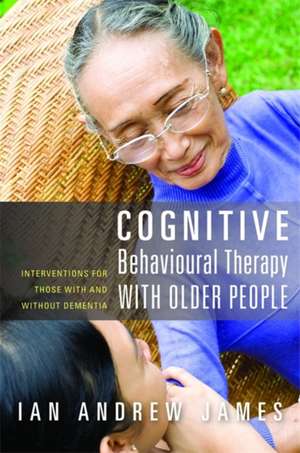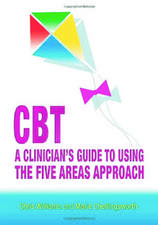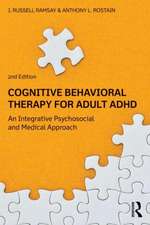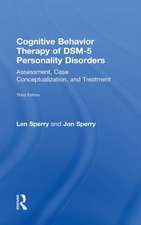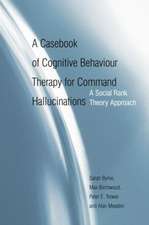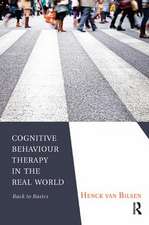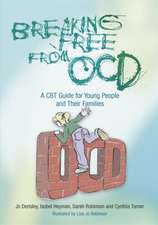Cognitive Behavioural Therapy with Older People
Autor Ian Andrew Jamesen Limba Engleză Paperback – 30 apr 2010
Preț: 226.37 lei
Preț vechi: 305.70 lei
-26% Nou
43.31€ • 45.35$ • 35.93£
Carte disponibilă
Livrare economică 19 martie-02 aprilie
Specificații
ISBN-10: 1849051003
Pagini: 256
Dimensiuni: 150 x 228 x 20 mm
Greutate: 0.39 kg
Editura: Jessica Kingsley Publishers Ltd
Locul publicării:United Kingdom
Notă biografică
Ian Andrew James is Head of Newcastle Challenging Behaviour Service and Consultant Clinical Psychologist for Northumberland Tyne and Wear NHS Trust. Having graduated in Psychology from the University of Aberdeen, he undertook a PhD in cognitive psychology at Lancaster University. After completing his clinical training at Newcastle University, he spent four years at Newcastle Cognitive and Behavioural Therapies Centre, undertaking work on therapeutic competence. Ian Andrew James has published extensively in the field of mental health, training and clinical supervision, and is a regular speaker at national and international conferences. He is a lecturer on the Clinical Psychology course at Newcastle University, and now focuses on applying therapy to people with dementia.
